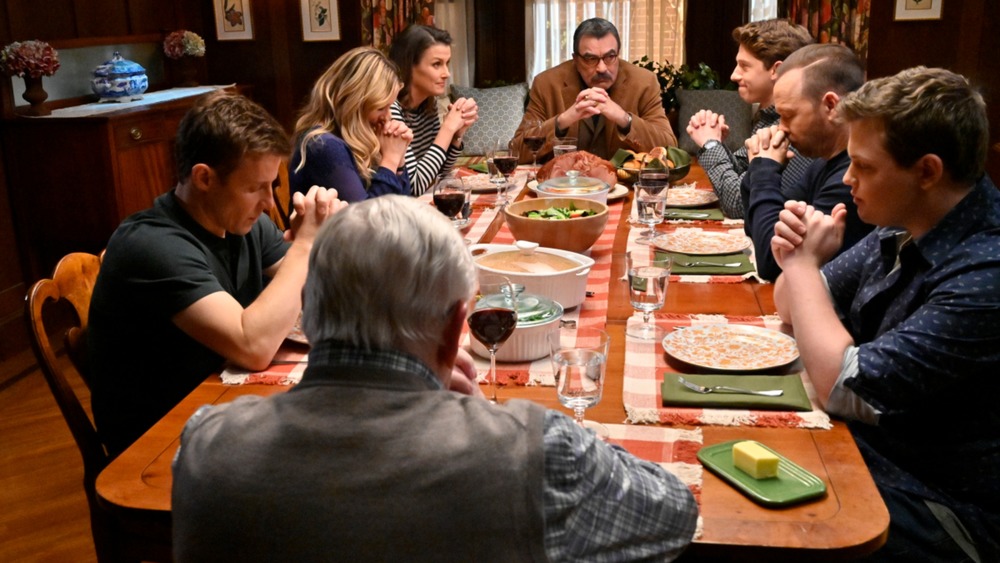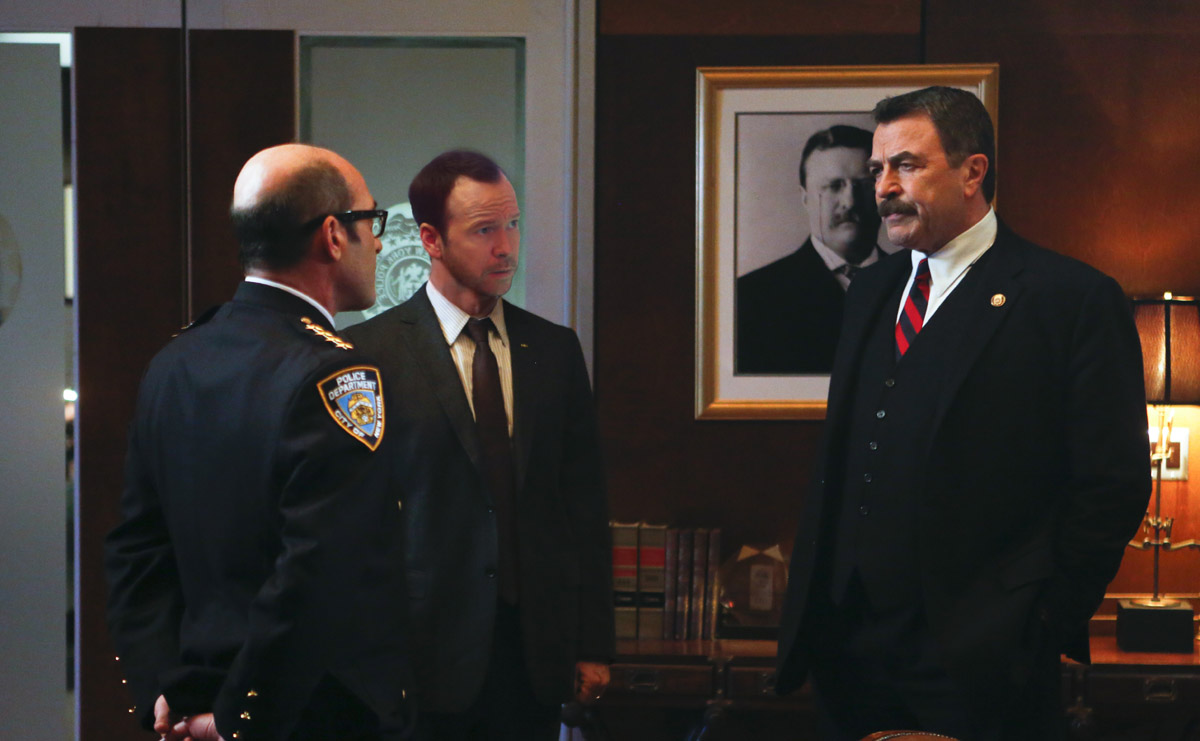Blue Bloods sets itself apart from other network procedurals by being a character-driven show at heart. Even though each episode involves individual cases that are wrapped by the time the credits roll, what really keeps viewers coming back for more is the dynamic relationship of the Reagan family. And ultimately, it’s out of respect for the show’s character-centric core that the writers tend to avoid leaving viewers hanging at the end of each season.
For most shows, the season finale cliffhanger is a time-honored tradition. Whether it’s pondering who shot J.R. on Dallas or the shock of hearing Jack scream “We have to go back!” on Lost, TV is littered with unforgettable season finales that left viewers wanting more. But Blue Bloods isn’t interested in leaving fans pondering a beloved character’s fate in between seasons, and for Tom Selleck, the reason why the show avoids cliffhanger endings is quite simple: he trusts the audience understands the stakes of a network TV show.

Compared to the soapy Dallas or the mysterious Lost, Blue Bloods revels in the mundane. It’s a family drama, and even though every member of the Reagan family is a cop, for the most part, the show avoids deadly shootouts in favor of tense inter-family conflict around the dinner table. In an interview with Deadline, Selleck confirmed that the decision to eschew cliffhanger finales was by design.
“When we did our final Magnum episode, we finally could get genuine jeopardy to Thomas Magnum because he could die,” he explained. “Then and now, what I like to work on is giving audiences a lot of credit for being smart rather than stupid, they know what’s going on… and that comes out of the subtext of the scene. So, in a season finale, because everybody does it, you’re really saying somebody’s going to die. That isn’t going to work here.”
Blue Bloods would rather deliver realistic character conflict than nail-biting cliffhangers

There’s no doubt that cliffhangers are a fun part of the TV viewing experience, but they’re not always necessary. On a show like Blue Bloods, it’s far more important to create meaningful conflicts between the show’s large cast of characters, because it’s those scenes that keep viewers coming back to the series week after week.
“The jeopardy in our show is a danger to the relationships,” Selleck told Deadline. “You can get momentary jeopardy to a character and a tense life-threatening situation, but you can’t even hang a whole show on that. What you can hang it on is an audience’s sense of anticipation based on what they want and what appears to not be happening.”
It may be an unconventional strategy, but since Blue Bloods has been on the air for 13 seasons and counting, it’s one that seems to be working out just fine for the Reagan family (and CBS).
